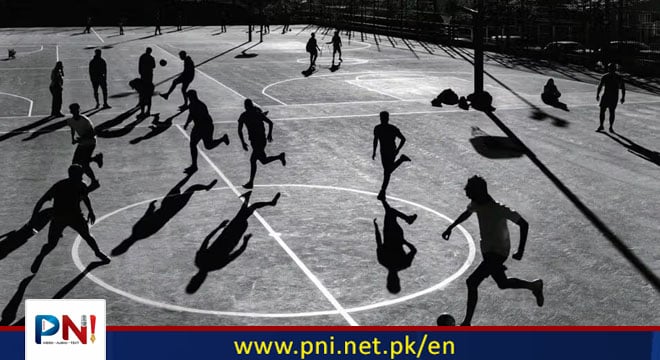ISLAMABAD, JUNE 07 (ONLINE): New research shows that moderate to intense bursts of exercise can aid the efficiency of rituximab, an antibody therapy that is employed to treat chronic lymphocytic leukemia.
Researchers in England found that this type of exercise increased the presence of so-called natural killer cells that, coupled with rituximab, can attack cancers cells in the blood.
Experts say exercise is increasingly known to be effective to help the immune system fight cancer but caution that this study’s small sample size makes it hard to extrapolate larger patterns for a larger population.
A burst of vigorous-intensity exercise could aid the efficacy of rituximab, an antibody therapy that is commonly used to treat chronic lymphocytic leukemia (CLL), new research shows.
Scientists at the Universities of Birmingham and Bath, in the United Kingdom, have published a study in the journal Brain, Behavior, and Immunity, which looked at a participant group of 20 people with CLL.
These had not received any cancer treatment before, and took part in a round of cycling for 20 to 30 minutes as part of the study.
The researchers found that this type of exercise — in which participants were instructed through moderate- to vigorous-intensity cycling — raised the number of anti-cancer immune cells, or natural killer cells, by 254%.
In combination with rituximab, which attaches to a protein on cancer cells that helps the natural killer cells identify and kill them, the anti-cancer cells were twice as effective in blood samples taken immediately after exercise.
“This study is the first to show that a single bout of vigorous intensity cycling exercise improves rituximab-mediated ADCC [antibody-dependent cellular cytotoxicity] against autologous CLL cells ex vivo,” the authors write.
“The mobilisation of CD5+CD19+ CLL cells and their subsets in response to cycling exercise in this study is a novel finding not previously described. CLL cells possess a similar phenotype to that of healthy B-cells (e.g., CD19) and these cells may increase up to 100% following a bout of vigorous cycling in healthy humans,” they conclude.
Questions on the role of exercise in cancer treatment remain unanswered
Catherine S. Diefenbach, MD, the director of the Clinical Lymphoma Program at the Perlmutter Cancer Center at NYU Langone Health, who was not involved in the research, told Medical News Today that while the study’s results were interesting, there are still unanswered questions, most prominently due to the very small sample size.
“This is a small pilot study of 20 patients in a controlled situation — restricted to exercise in a set fashion — with some intriguing biologic findings of exercise activation NK cell activity and Rituxan [brand name for rituximab] induced CLL killing,“ she explained.
“However, this data needs to be validated in larger studies with a more heterogenous patient population,“ cautioned Diefenbach. “It is also not clear how this finding impacted clinical outcome or whether it did have any bearing on response to therapy, or disease stability.“
“This study does not demonstrate that exercise impacted the clinical trajectory of CLL, merely that it induced enhanced Rituxan directed CLL cytotoxicity,“ she pointed out. “There are no randomized clinical trials in the cancer space that I know of that use exercise as an intervention and have demonstrated an improvement in clinical outcome.”
Wael Harb, MD, a board-certified hematologist and medical oncologist at MemorialCare Cancer Institute at Orange Coast and Saddleback Medical Centers in Orange County, CA, who likewise was not involved in the research, also told MNT that it would be hard to extrapolate a broad template of treatment from of this study.
“The patient who will be able to do vigorous exercise maybe has a different immune system compared to people who don’t. How can we generalize this data or this information to others because of the feasibility of the exercise, and because of the sample size?” Dr. Harb wondered, adding that because the study was based on blood samples — ex vivo — it is hard to determine what is going on inside of the body.
“Most important is how this will impact outcome, right? So you need to have a long-term outcome to see — does this really make a difference in response to treatment, [in terms of] leukemia pain remission? We would require more structural study to do that and expose randomized patients to different regimens with the same treatment — with rituximab — or rituximab-based treatments and we can add different exercise programs to that.”
– Wael Harb, MD
How might exercise affect cancer?
While many cancer treatments, especially those that involve chemotherapy or surgery, can cause extreme fatigue that can prevent physical activity, there is growing evidence that exercise can stimulate immune cells.
Harb explained that physical activity has been well-documented as a way to boost the body’s immune system to fight cancer cells. He cited several studies from the past few years that examined the effects of short bursts of exercise and more regular patterns of activityTrusted Source.
“We recommend being active and exercising — we do believe that there’s a body of evidence that exercise during cancer treatment can help the immune system and now more than ever before we understand the role of the immune system in fighting cancer,“ he said, speaking of clinicians’ advice.
“[I]n fact, we a lot of the newer therapies for cancer are immune-based therapies that help activate the immune system to fight cancer,” Harb added, though he had some further words of caution regarding exercise as an add-on to cancer therapy.
“The vigorous exercise portion — that’s a little bit challenging. It depends on, basically, to the person’s ability to exercise, age, comorbidities that make it more difficult. So there may be some practical issues there when we talk about vigorous exercise; it makes it limited to what patient might be able to participate.”
Follow the PNI Facebook page for the latest news and updates.









